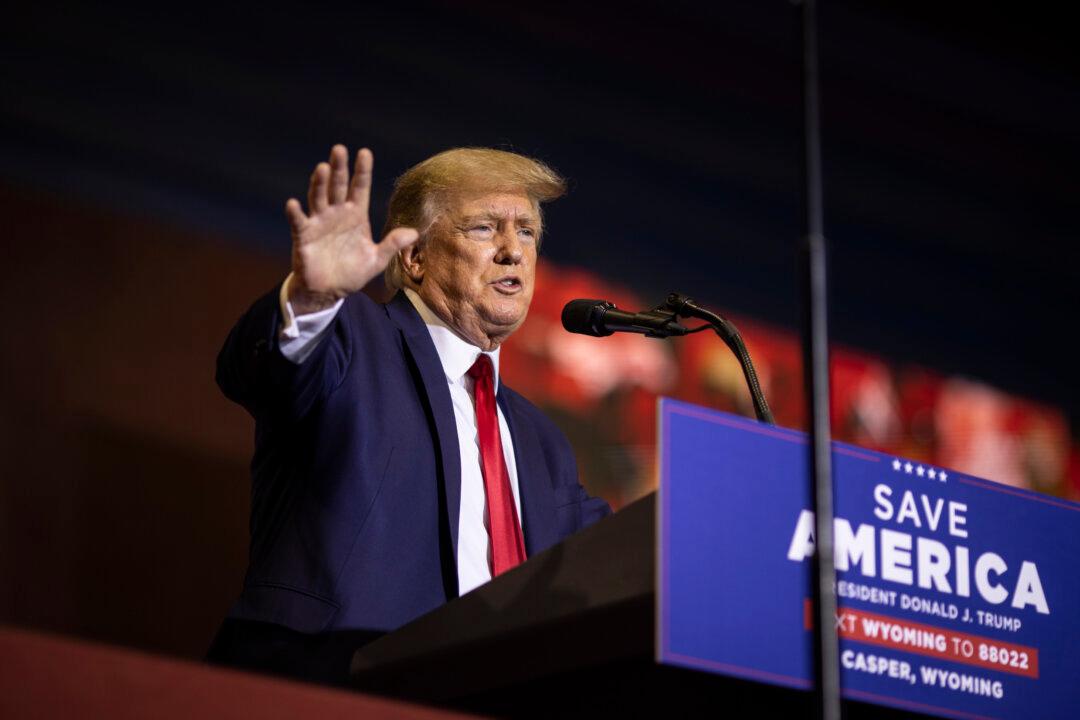Stephen Moore, former economic adviser to the Trump White House, told Newsmax in a recent interview that he’s convinced that if former President Donald Trump had been reelected for a second term, America’s economy would not now be in what he described as a “mild recession.”
In the interview that aired on Aug. 25, Moore was asked to comment on the revised gross domestic product (GDP) numbers released earlier in the day, which confirmed that the U.S. economy contracted in the second quarter.





